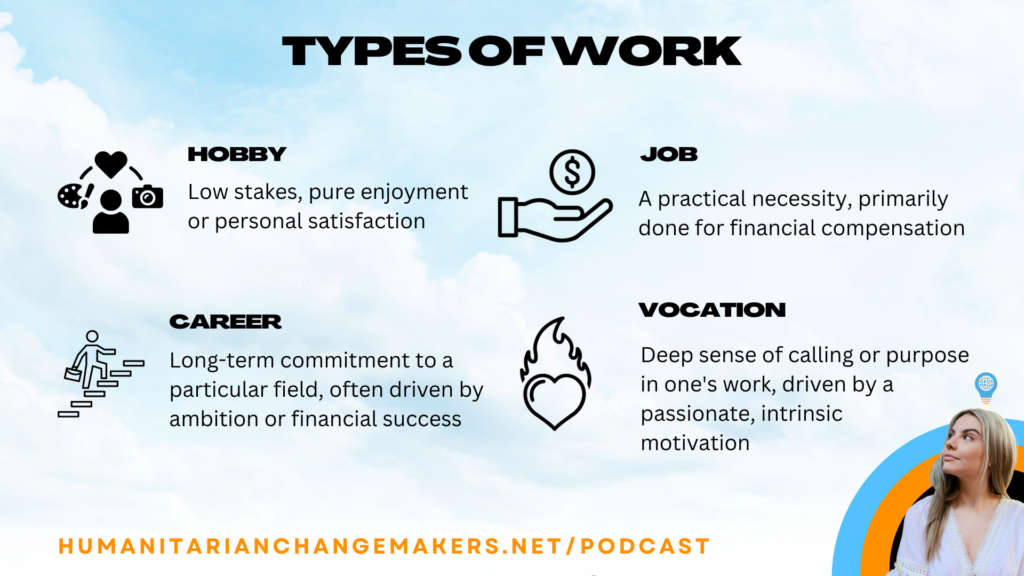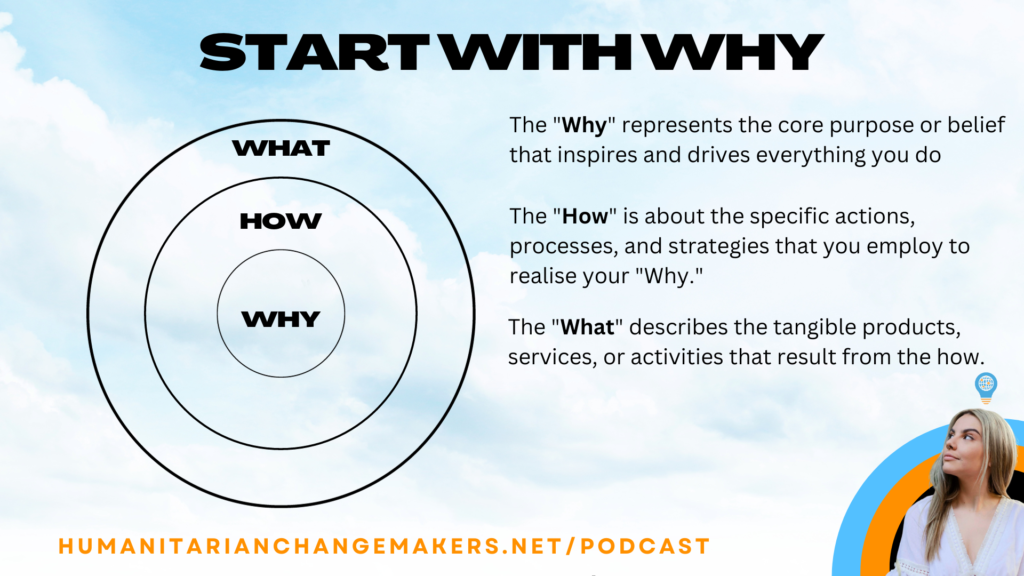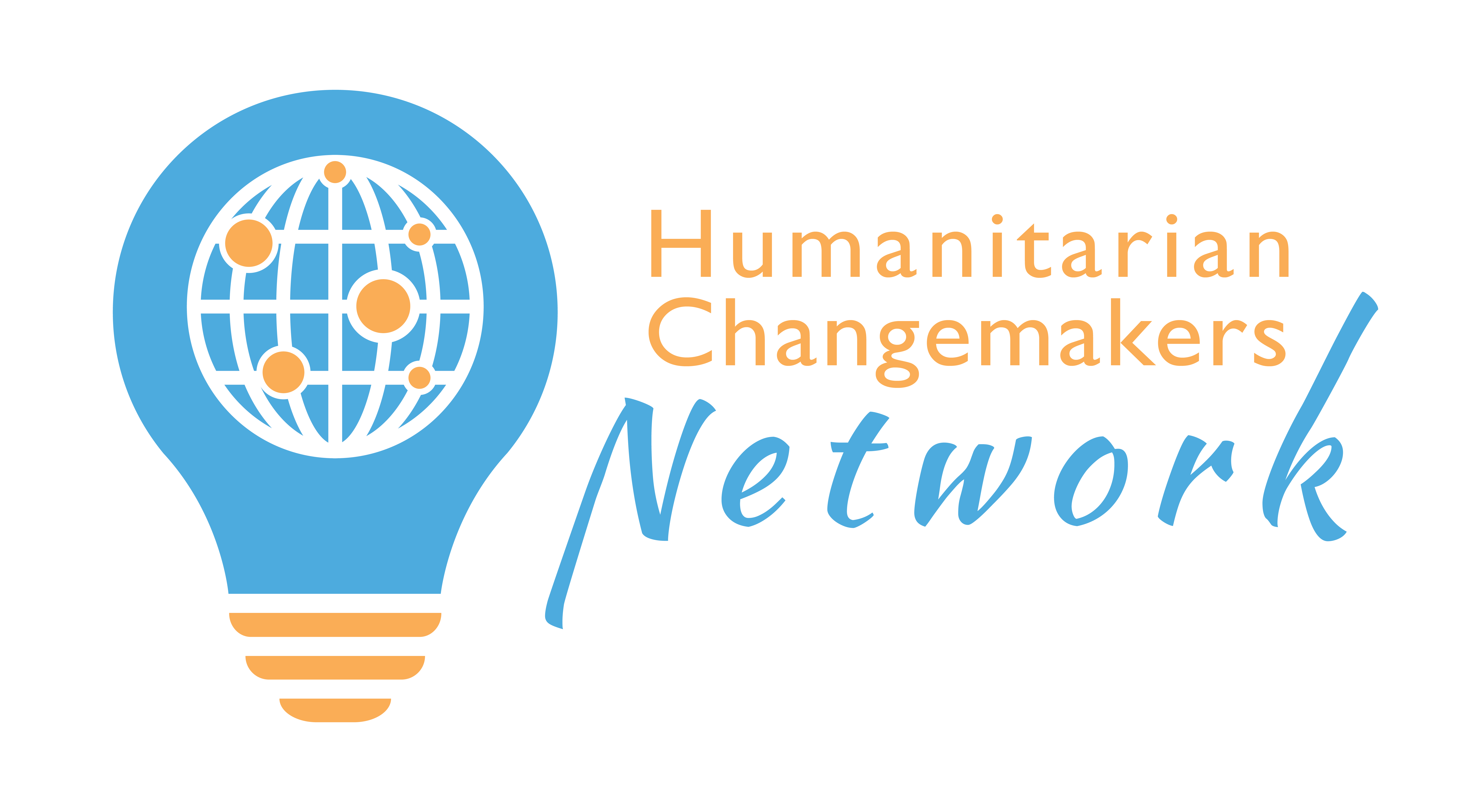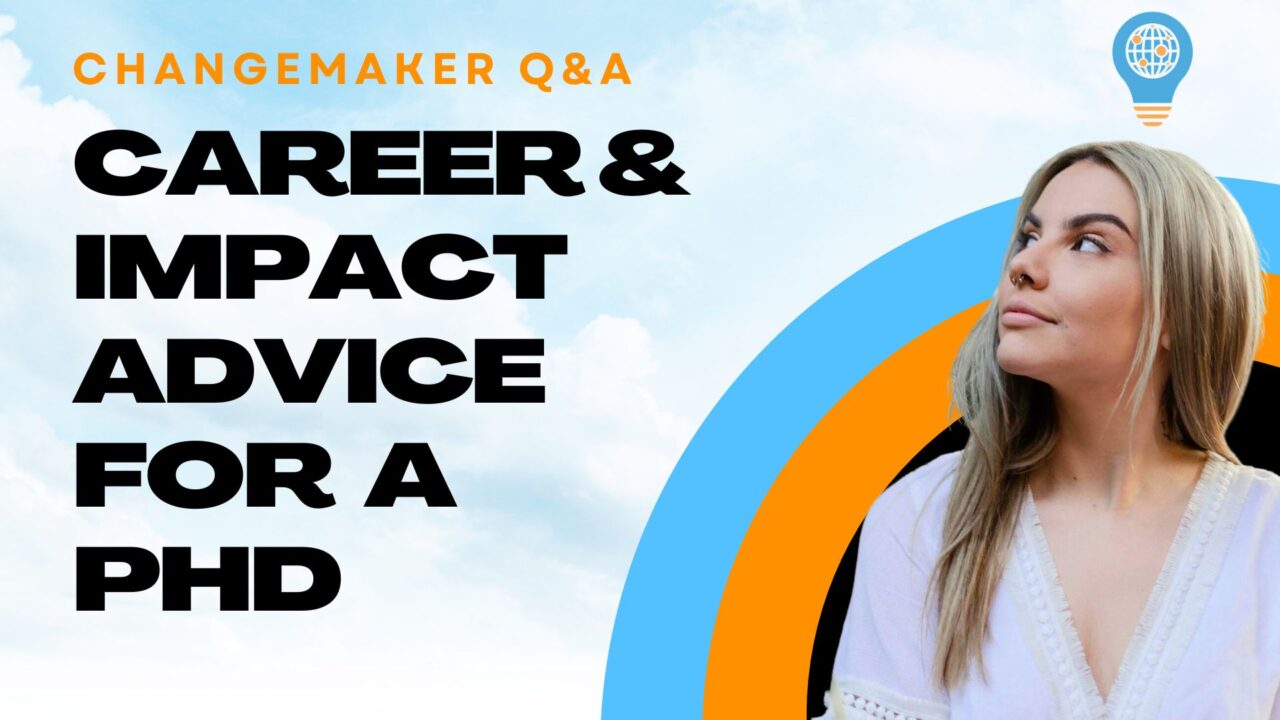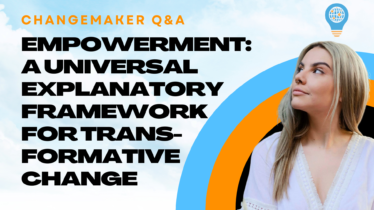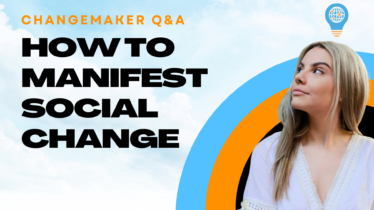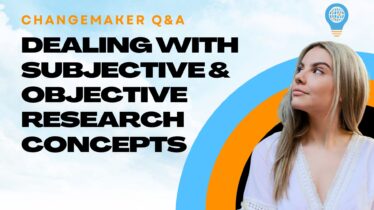Welcome back to Changemaker Q& A everyone. I am your host Tiyana J, founder of the Humanitarian Changemakers Network and final year PhD student. That is a very relevant role that I hold for today’s episode because in today’s episode I am going to be answering a question that was asked by a number of people.
Personally across my social media and also on our first episode of the podcast. And there was a series of questions that were asked by people all about whether or not they should do a PhD. If I have any tips or advice for people in the social change space, interested in engaging in a higher research degree.
Now. This is not career advice. I simply want to share my experience as a PhD student and particularly come at it from the perspective of the different ways in which we can engage in work. And the ways in which our work can have an impact in the world and just my own kind of like personal tips and tricks that I have found.
So I think that something that kind of makes this question of whether or not to do a PhD or any kind of research degree one that is a little bit more difficult for somebody who is working in the social change space to answer is the fact that it’s not simply a question of Is this decision going to be the right move for me and my career, but it’s also a question of, is this the best use of my potential?
And when I say potential, I mean potential as like our potential for change. Is this the best use of my skills or knowledge and the potential impact that I am able to have in the world? And I think that. My advice in answering this question could probably be applied to any major life or career decision that you might be making, not necessarily just when it comes to deciding to do a PhD.
Now, in our first social change handbook, The Changemaker in You, I discuss that anything we do as change makers in the social change space is a type of work that we are engaging in and I like to use the definition of work and the distinctions of the types of work that we do that Elizabeth Gilbert, the author of Eat, Pray, Love, puts forward in her book.
Big Magic, Creative Living Beyond Fear. It’s a great book if you are a creative person or somebody who is following a more unconventional career path. I really liked the book. But basically Gilbert makes this distinction. Between the four different types of work that we can engage in when we are following creative pursuits.
And I would extend this distinction to any kind of impact pursuits that we might be engaging in as changemakers. So she talks about hobbies, jobs, a career and vocation. And I think this framework is really useful in just kind of helping you understand the relationship with the activities that you are engaging with in the social change space and kind of what role these play in the broader context of your life.
So we start with hobbies. Hobbies are activities that we engage in purely for the enjoyment or the satisfaction that comes with it. So these are things that we often do in our leisure time. And we don’t really have an expectation of any kind of financial gain or any kind of formal recognition of our efforts.
Sometimes we do hobbies as a source of relaxation or fun or as a creative outlet. And I would extend this in the context of social change to any kind of activities that we engage in that provide us with an opportunity to explore our interests or our passions or develop our skills. So hobbies are very low stakes.
Then we move on to a job. A job is work that we do primarily for compensation, financial compensation, and it’s typically our means of earning a living. So, many people have jobs that don’t necessarily align with their passions or their interests. But they do them for the economic stability and security.
And a job doesn’t have to provide you with any kind of deep sense of fulfillment, and often they don’t. They’re more about providing the practical necessities that we need to live our life. For some people, a job might provide them with some kind of fulfillment, they might be able to work a job that kind of gives them that satisfaction and allows them to work towards creating the future or the world that they want to see as a changemaker.
But more often than not, a lot of changemakers will pursue their interests and their passions externally, and they will hold a job. That allows them to maintain a particular certain standard of living whilst doing this. For example, I have a job that I have held pretty much since I turned 18. I work in adult entertainment and I have been doing that since I started university and I turned 18.
I enjoy my job, and I don’t think anyone should necessarily hate their job, but we don’t necessarily need to find a job that is meaningful. We can find meaning in other things that we do. And we can work a job that allows us to pursue those other things. So my job in the adult entertainment industry has given me the financial freedom and the flexibility to travel the world whilst studying full time.
It’s given me the freedom and the flexibility to actually start the humanitarian changemakers network and start a social enterprise. While still being able to financially support myself, put a roof over my head support my dog, Rocco and do all of the things that I want to do for myself. So that’s the role of a job.
Then we move on to a career. Now our careers are kind of characterized by being more long term and it involves some kind of commitment to a particular field or a particular profession. And it’s often driven by some kind of personal desire or ambition. or some kind of success that we want to see. A lot of the time this success might be financial success.
And for individuals that are engaging in the social change space, we might pursue a career that also aligns with the purpose that we hold or the impacts that we want to make in the world. But we might not, we might pursue a career that gives us You know, the chance to climb some kind of professional ladder, achieve formal recognition, gain financial rewards, and that might be completely separate to the work that we’re doing in the social change space.
The work that we’re doing in the social change space might actually be a hobby of ours, something that we engage in for the pure enjoyment and passion of it, and our career is something that is separate to the impact work that we do. Or, more often than not, the impact work that we do, if it is separate to our career, it might actually form the fourth type of work that Elizabeth Gilbert describes as our vocation.
So the word vocation comes from the Latin word vocare, which means to call for. Similarly, the word advocacy. Also comes from the same Latin root advocacy is about calling for support. Your vocation is essentially your calling or your sense of purpose in life or your work. So your vocation will be driven by passion and intrinsic motivation.
A lot of people who consider their work to be their vocation kind of view it as being a higher purpose or a higher calling or a more authentic expression of their true self than Any kind of paid employment, any job or any career might offer them. So vocations are less about the financial gain. And they’re more about that personal fulfillment, that meaning that we get and being able to make the impact that we want to make in the world.
So there’s no right or wrong. Category that the work we do as a change maker should fall into. There’s nothing wrong with somebody who pursues a job purely for the financial benefits and they pursue their passions and the impact work that they want to pursue as a hobby or maybe as their vocation, there’s nothing wrong with somebody who wants.
to be part of their career and they want to be financially compensated for their skills and their efforts as much as they want to be able to make an impact through that work. There’s no right or wrong way, but the thing that I think is important when we’re thinking about these four categories is to just think about the relationship that we have with our work and with our impact work.
And if somebody who is thinking about doing a PhD, it’s important to think about whether that is as a part of your career or perhaps your vocation. Nobody is doing a PhD as a hobby that it’s not a low stakes activity. It is quite stressful. It’s not going to be a hobby. It’s also not going to be a job because it does not financially compensate you.
In a way that I think is relative to the amount of effort that you have to put into it, it is definitely either going to be something that you do for your career. So it’s gonna be that stepping stone you do because it’s gonna open up new possibilities, new job opportunities. It’s going to provide you with a set of skills research skills that you can apply.
in potential jobs in your career, or it’s going to provide you with a type of specialized knowledge that is going to help you get a job and help you kind of expand all of your career possibilities, or it’s going to be something that you pursue purely for the passion. This is something that’s probably not talked about as much because we live in a capitalist society.
We live in a world in which. The education system is very much expected to prepare us for employment. It’s not like it was back when the academy kind of emerged in contemporary Western societies as something that allowed us to pursue knowledge purely for the enjoyment and the, the sake of pursuing new knowledge.
And I don’t think that’s necessarily right or wrong. But it is just something to consider. A lot of people ask me what I plan to do when I finish my PhD, and for me, doing the PhD was never really a career move. It was never something that I did because I wanted to pursue a career in academia, or because I necessarily thought that I wanted to get a job where research skills would really benefit me.
That’s not to say that they aren’t kind of like an unintended benefit that I’ll get at the end of my candidature, but for the most part, I enrolled in my PhD program because I saw the project that I applied for as something that really aligned with my passions. It was something that really lit me up and I really wanted to contribute to, and I didn’t have a background, I didn’t have a formal background in communication in the context of social change, and so the opportunity for me to pursue a PhD in communication for social change as somebody with a sociology and philosophy background was something that I was really excited by.
Of course, there are career benefits to, I guess, expanding my area of expertise, but that was never the intention. The intention was for me to spend a couple of years pursuing something that I thought would be a good use of my skills and a good way for me to contribute to my field. It was definitely more of a vocation.
Choice than a career choice. Although now that I’m getting to the end of it, I definitely think that it kind of falls into both of those categories and you know, you don’t have to pick one of those, but I think it’s just important to know where you might sit in terms of your relationship with the work that you do in a PhD or a research masters.
If you are somebody who’s really passionate about environmental sustainability. for example, but you’re thinking about doing a PhD in, I don’t know you’re thinking about doing a PhD in English literature because that’s,
You can pursue the PhD purely for enjoyment, and then you might look at building a career in the environmental space or vice versa. You might work in healthcare and you might think, Hmm, I’d really like to develop my career and open up potential employment opportunities by researching a particular area of research.
public health that interests me. So you might go and do a PhD in public health, but your true passion when it comes to social change might actually be in, uh, education and working with refugees and people who have sought asylum in Australia. And so you might pursue that as a vocation and there’s no right or wrong.
It’s just important, I think, to think about that and just be really intentional because that is going to affect whether or not doing a PhD is the right decision for you. I think that for the most part a PhD as the stepping stone in your career is very beneficial. As a vocation it is potentially not going to benefit you as much.
I think that for the amount of effort that you’re putting in and for the I guess pay cut that you might be taking to live off a PhD stipend if that is your vocation, it may not be worth it. So another thing to consider if you are thinking of doing a PhD purely for the impact is thinking about whether you’re expecting your actual research project itself.
To be a vehicle through which you impact the world, or whether you’re expecting the skills and the knowledge that you develop from doing your PhD is going to give you a more I guess, nuanced approach or Put more things in your change making toolkit that you can use to increase the impact that you have in the world once you actually finish it.
So for me, I went into this particular PhD program with the intention that I thought my project itself would actually have significant impact for the communities that I was working with and I still hold that view. I still think that my research is quite impactful for all of the stakeholders that were engaged in my research.
And for those who will hopefully take my research findings and be able to apply them to their own work. But I don’t think that is a requirement. I think that if you are doing a PhD for the fact that you want to develop your career, you want to give yourself some more skills and knowledge. It’s totally okay for the actual project that you’re doing to not necessarily have a very clear, tangible impact at the grassroots level.
The very nature of academia is that a lot of the time we’re kind of dealing with either the fundamental foundational knowledge and assumptions that shape the ways in which we engage in work in our field or where Focusing on a lot of the theory and that kind of higher level thinking that doesn’t necessarily translate to that kind of real world, tangible grassroots change.
And just being aware of those things is also something to consider. So, I’m going to assume that… If you’re listening to this, maybe you have thought, okay, I could see the value that a PhD might have for me, either as a vocation, because I think that my actual research project could have a significant impact on a particular community or on the field, or because I think that in terms of my career, the skills and the knowledge I gain from doing a PhD would really allow me to have a bigger impact in the work that I do post PhD.
So then it’s just a question of, I think, is this the right time? I think that if you think doing a PhD is the right thing for you, Then it probably is. I think that you will gain so many benefits from it in terms of the connections that you make, the resources that you have access to through a large institution like a university.
You won’t get that anywhere else, particularly in the social change space, unless perhaps you’re working for like government or something, you probably won’t have access to such a high. level and quality of resources. You also will just develop so many hard and soft skills. If you’ve done a prior research degree, which you probably have in order to get into a PhD, then you’ve probably already got those kind of like foundational research skills.
But to actually be in charge of a significant project, like a PhD project, you really don’t get that kind of experience at any kind of entry level job, I don’t think. Even if you were working as a project manager, I think that that is something that you would be working your way up to. But It really blows my mind to look at my project, looking at the relative scope and depth of my project, and thinking, Holy crap, I actually planned out this entire project.
I’ve gone overseas, I’ve carried it out, I’ve done all the fieldwork. Now I’m actually writing it up. Like, that’s a huge thing. And it’s a huge level of responsibility to have as well. Obviously you have a supervisory or advisory team. Throughout your candidature, but you are largely responsible for the project, and I think that is something that can benefit you across and throughout your career.
You’ll also learn a lot of soft skills, I think, that you may not get if you are in the workforce depending on what jobs you might have. There’s… Lots of, I think, benefits that you do get from doing a PhD. Something that somebody said to me early-ish in my candidate chart was that doing a PhD is a very selfish time in your career that you probably won’t get, uh, in any other circumstances, and I think that’s absolutely accurate.
You are essentially given three to four years. To choose your own project, to plan and manage this entire project, based on your area of interest and what you’re passionate about. You’re given all of the resources and the support that you actually need to go out and do this thing. And at the end of it, you get a globally recognized qualification for that.
Like, it is a very selfish… opportunity that you probably won’t get. You don’t really get the chance to just choose your own project or choose what you want to do in a career, unless you are working for yourself or you’re self employed. And… It’s really exciting to be able to actually look at the kind of area that you want to research and say, okay, this is what my research question is going to be.
This is what I actually want to do. This is what I actually want to address in my research and to be supported to go out and do that. I am incredibly grateful that I have had this opportunity. It’s. Definitely not something that I take lightly. I am so grateful for the opportunity that I’ve had and for all of the connections that I’ve made and for the impact that my research will have.
Sometimes it blows my mind that I even got into my PhD program, let alone I’ve actually come this far and carried out my research and am now in the process of writing it all up and getting it published. The one thing that I will say is that it’s important. to choose the right time. And I mean, we could look at it and say, okay, the, you know, there’s never a right time and that’s true, but there are times that are going to be better than other times.
Did I do my PhD at the right time? I would say yes, I did. The reason I, so I started my PhD in July, 2020, and the only reason I decided to do my PhD then was because of COVID. So I’d finished my honours in 2019 and I founded the Humanitarian Changemakers Network and my plan for 2020 was to go and travel the world and focus on building.
And then COVID hit and I couldn’t travel and there was so much insecurity and instability around me. I kind of panicked and I thought, Oh my gosh, is this the right time to be doing this? Is this the right thing to be doing? And then I saw my PhD program that I’m now doing and I saw the particular project that I applied for and I looked at it and I thought, okay.
If I was ever going to do a PhD, this is the project I would want to do. It was in a field that I was so passionate about, but didn’t have the academic background in, and I looked at it and I thought if I could do a PhD in communication and social change, that would be phenomenal. I looked at it and I was like, yes, I want to do a PhD with the university of Queensland and with one of India’s top universities, like the.
dual research institute thing really appealed to me. The chance to actually travel to India to do my field work and to live over there and to work in partnership with development organizations at the grassroots level was something that I just thought, yes, this is the dream PhD program. So I applied for it.
It was the only PhD program I applied for. And I thought, you know what, if I don’t get it, it’s not meant to be. And if I do get it, then it’s meant to be. And obviously I got it. Which I’m so grateful for. And if I hadn’t got into this PhD program, I definitely wouldn’t be doing a PhD now. I would have just thought, okay, I’ll try again in the future because my intention always was to kind of consider doing a PhD, maybe.
In a couple of years after I had had a little bit of a career, maybe after I’d had kids, if that’s something that I do, I never wanted to do it straight after my undergrad. Obviously, it kind of worked out this way. I think that the thing I would really consider is just to consider where you are, like in life, considering we are in the midst of a cost of living crisis.
I would recommend that you seriously think about whether you can take the significant pay cut if you are somebody that works a salary or waged job. A PhD scholarship is currently indexed at about 35, 000 a year. So it’s below minimum wage. It’s… Obviously tax free, but it’s for the amount of work that you’re putting in and the amount of effort that you’re putting in.
It is really just enough money for you to get by and survive on to cover your basic living expenses. If you are single, then. Obviously, the challenge of, you know, maybe living in a share house or where you’re going to live is something that you would need to consider. If you have a partner or children or a family, being able to support them through your candidature is something to consider.
If you have a partner, looking at whether they can maybe support you during this time is something that’s important to consider. It’s definitely been one of the most challenging aspects of my candidature, in my opinion. Obviously, you do have opportunities that you can take, like going and tutoring some courses working with your university.
But, even then, you’ve already got a huge workload, you’re only going to add more to that workload, and you’re still doing it for, like, minimum wage, so that’s just something to consider. I wish I had maybe thought about that. Initially, I mean, really, I don’t know. I maybe just wish I had more financial literacy before I started my PhD.
It’s definitely something that I have developed over the years, but I went from working a job where I had a significant degree of financial freedom and flexibility. And I was an undergraduate student to suddenly being a PhD student where I had to take a significant pay cut. And I didn’t really have the habits or the, I guess, tools to kind of manage my money initially.
So that really is something to consider and something that’s probably not talked about enough. I think I would love it if PhD candidates were compensated a little bit more for the work that they’re doing, considering the fact that. You know, at the end of your candidature, your university is going to take so much credit for the work that you’re doing through them.
And yeah, I think it would just be a bit nicer if we were paid at least the equivalent of minimum wage. But I think this is where I will kind of wrap up this episode. So, in terms of… thinking about whether a PhD is right for you and your work as a change maker. An exercise that I like to do is based on the framework that’s put forward in Simon Sinek’s book Start With Why.
It’s essentially three concentric circles and you can imagine the middle circle is your why, the circle outside of that is your how, and then the circle outside that is your what. So it’s a good idea to maybe think about what is your why in terms of your purpose as a change maker. What is the like impact that you want to make or the thing that you want to do as a change maker and write out your why.
Then look at the how. The how is all of the different ways that you might be able to do this. And the what is the actual actions that you take towards this. So thinking about whether the how for your, some of the hows for your why involve research. Whether that is an avenue that kind of allows you to pursue that why, and then the what would be doing a PhD, engaging in that kind of research.
But if the PhD or research doesn’t really align with your purpose, your why, the thing that you want to do as a change maker, and it’s maybe not the right career move for you, then I would look into alternative ways that you can engage in the social change space to carry out or live out your why. As always, you can find any resources and things that I spoke about in this episode linked in the article in the description below.
I We’ll leave a link to The Changemaker In You, our social change handbook, which also discusses the four types of work that we engage in as changemakers based on Elizabeth Gilbert’s distinction. The Changemaker In You is our introductory social change handbook that I recommend anybody who is new to the social change space check out.
It, as a changemaker. From the time I was 17 to the time I founded the Humanitarian Changemakers Network. It presents a basic framework for developing a theory of change and you can get it for free. I want as many people to kind of understand this stuff and be empowered to engage in the social change space.
So it is available as a free ebook. If you have any questions you would like me to answer in an upcoming episode, definitely ask them directly via Spotify or YouTube if you are watching this, otherwise you can head to humanitarianchangemakers. net forward slash podcast, ask your questions anonymously or not, and we will send it Any podcast questions that are answered the person who asked them will receive some goodies like our Changemaker Co. patches. You can follow us on Instagram at humanitarianchangemakers and you can follow me on Instagram at tianaj, t i y a n a j, and I look forward to connecting with you all and seeing all of the incredible things you are doing to create change in your community.
